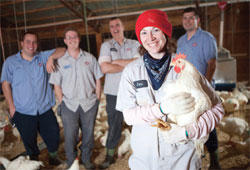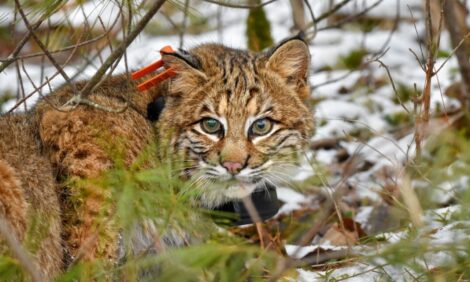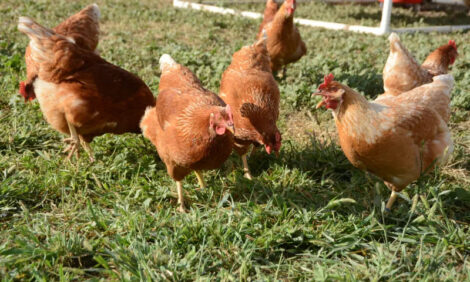



Animal Welfare as a Key Component of Daily Poultry Routine
With the appointment of a new director of world animal welfare, Cobb is putting an ever greater focus on this aspect of production. The new appointee, Dr Kate Barger, outlines her views on welfare and the challenges ahead in the latest issue of Cobb Focus.
Animal welfare is not a ‘new’ concept or trend. For years, farmers
and managers in poultry production have incorporated aspects of
animal welfare into their daily routine for livestock.
Animal welfare has been, and will continue to be, directly
linked with animal health, best management practices and
production.
As such, the responsibility for ensuring optimal production and
animal well-being involves everyone in the production chain —
farmer, manager, quality assurance personnel, veterinarian,
nutritionist, transporter, vaccination team, etc. Each individual
must therefore be conscious of their role in providing consistency
and verification for the best animal care practices.
When considering the evolution of attention on animal welfare,
it is easy to see that this topic now has a greater ‘presence’ than
ever in the media and is widely included in scientific studies and
publications.
The reason for this is the challenge in determining what is ‘best’
for the well-being of animals in their present environment while
also complying with the demands that governments, industry,
consumers and/or society may place on the farmer or on the
animal. Specifically, we now have to seek a balance in what the
‘expectations or priorities should be’ and what the ‘performance
or actual priorities are’ for all parties involved.
For example, some critics will point to today’s global and modernised agricultural operations as not being diligent in their
care of, or response to, their animals’ needs. However, if we
evaluate the facts and figures associated with these modern
farming systems during the past decade, we can see that the
majority are still owned and operated by family farmers and the
actual well-being outcome of the flocks has improved with novel
technology, improved breeding stock and advances in animal
husbandry practices. Nonetheless, there are many opportunities
for advanced scientific evaluation, innovative thinking and
attention to continuous improvement in many different aspects
of poultry production.
As a global poultry primary breeding company, Dr Barger says Cobb has
tremendous responsibility and equally a remarkable opportunity
to be a leader in animal welfare — for the benefit of the birds that
we produce and for the benefit of the farmers responsible for their
care around the world.
As part of Cobb’s commitment to realise this goal, the Company recognises that animal welfare involves everyone from the company
president to the farm and hatchery employees, its research and
genetics team, and its world technical team members who
provide direct support for customers, she added.
In Dr Barger’s view, the obligation to being the best in animal welfare also involves working closely with external researchers and allied industries to improve the understanding of the combined effect of genetics, environment and management on the bird’s well-being. To
remain competitive and to provide customers with a product with
optimal genetics, Cobb has and will continue to include the selection of many different measurements and traits directly linked to animal well-being, optimal health and efficient production.
With the new full-time position to focus on animal welfare,
Cobb continues to emphasise the importance of animal welfare as
a key component in daily poultry practices.
In this new position Dr Barger says she will be working to provide consistent
training and evaluation of best husbandry practices for company
employees, and support product development needs and research,
while also formatting an animal welfare strategy to address the
integrity of Cobb’s programme and prospective areas for innovation
and improvement.
Further ReadingGo to our news item on animal welfare by clicking here. |








